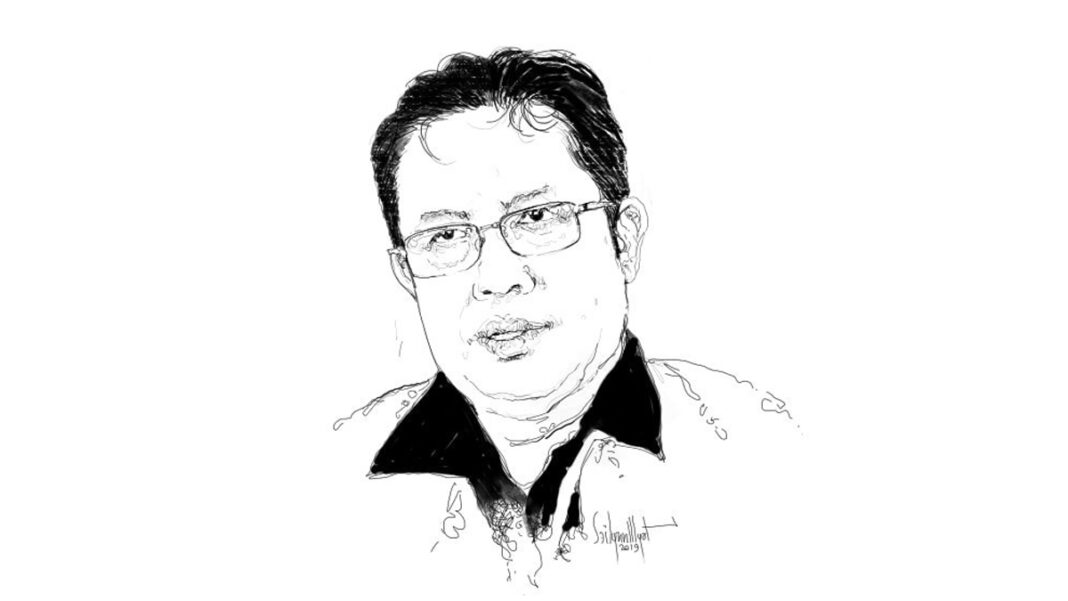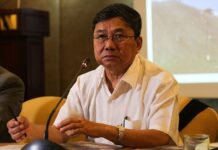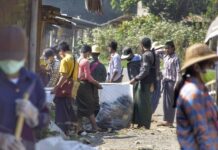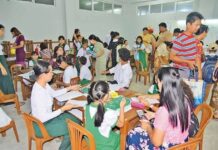More than two years have passed since Myanmar’s junta grudgingly accepted the ASEAN five-point consensus aimed at bringing an end to the catastrophic bloodshed and initiating national dialogue. Nonetheless, progress toward these goals is very slow.
The ongoing fighting between the newly formed People’s Defense Forces (PDFs), the military junta, and various ethnic armed organizations (EAOs), as well as some Border Guard Forces (BGFs) formed by the military, has caused untold suffering for the civilian population, particularly in regions such as Chin State, Karenni State, Karen State, Kachin State, and Sagaing Division.
The consequences of this political instability are devastating, and they are exacerbated by a continuously deteriorating economic situation. Since the coup, the Myanmar kyat has been devalued by around 30%, with informal exchange rates changing drastically. The decision by Myanmar’s Central Bank to devalue the kyat to 2100 kyat per US dollar in August 2023 worsened the financial crisis.
Despite the ongoing crisis, the military regime’s unwillingness to engage in substantive dialogue to settle the country’s political problems. Disunity among the National Unity Government (NUG), the PDFs, and various EAOs would be a significant factor in this issue. While the NUG, PDFs, and some EAOs such as the Karen National Union (KNU), Kachin Independence Army (KIA), Karenni National Progress Party (KNPP), and Chin National Front (CNF) are actively engaged in armed struggle against the junta.
However, some groups of these PDF units and EAOs are not under the control of the NUG. In addition, some powerful EAOs such as the United Wa State Army (UWSA), the National Democratic Alliance Army (NDAA), Restoration Council of Shan State/Shan State Army-South (RCSS/SSA-S) and the Shan State Progress Party/ Shan State Army-North (SSPP/SSA-N) and the New Mon State Party (NMSP) opt not to join the NUG and PDFs in fighting against the military. Besides, they chose to engage in peace talks with them.
Furthermore, the ethnic armed groups often engage in infighting, driven by their individual interests and mutual mistrust. This fragmentation among resistance forces impedes the prospect of initiating political talks to resolve the country’s crisis.
Another obstacle to bringing the Myanmar military regime to the negotiating table is the weak pressure from the ASEAN. This is due to the variety of governance systems among ASEAN’s member states. While Malaysia, Indonesia, and Singapore have intensified pressure on Myanmar’s junta to embrace peace efforts, a significant number of ASEAN countries are ruled by absolute monarchies or single-party communist governments. The variety of political systems among the member states has a considerable impact on Myanmar’s political situation.
For example, Thailand’s political landscape remains unchanged despite the democratic party getting a majority vote in the 2023 national elections. The military-backed coalition government retains power, preserving the status quo with the Myanmar military. Similarly, the son of long-serving ruler Hun Sen has been elected Prime Minister of Cambodia, assuring continuity in government policy in Myanmar. Furthermore, the forthcoming ASEAN chair in Laos PDR, a communist government, signals that collective action against the Myanmar military dictatorship would be constrained.
The Myanmar military’s interdependent connections with significant powers like China, India, and Russia are another barrier to the dialogue. While Western governments have exerted pressure on Myanmar, these neighboring nations continue to engage with the military regime. China, for instance, maintains its strategic interests in projects such as the Kyaukphyu oil and gas project, as well as vital imports of tin, copper, and rare earth materials. These resources are essential to China’s consumer electronics and defense industries. Similarly, India maintains its counterproductive policy of engagement with the junta politically and economically, despite the junta has reportedly used insurgent groups in the northeast as intermediaries to launch attacks on the Chin State’s resistance forces. Russia has also played a pivotal role in supplying the Myanmar junta with weapons and technology to suppress resistance.
Thus, the domestic unity among opposition groups, as well as persistent regional support from ASEAN and neighboring countries, are required to ensure a lasting peace in Myanmar. Only through concerted efforts and continuous pressure can the military junta be forced to participate in real discussions, putting an end to Myanmar’s suffering and opening the path for a better future for the country.
















Leave a Comments